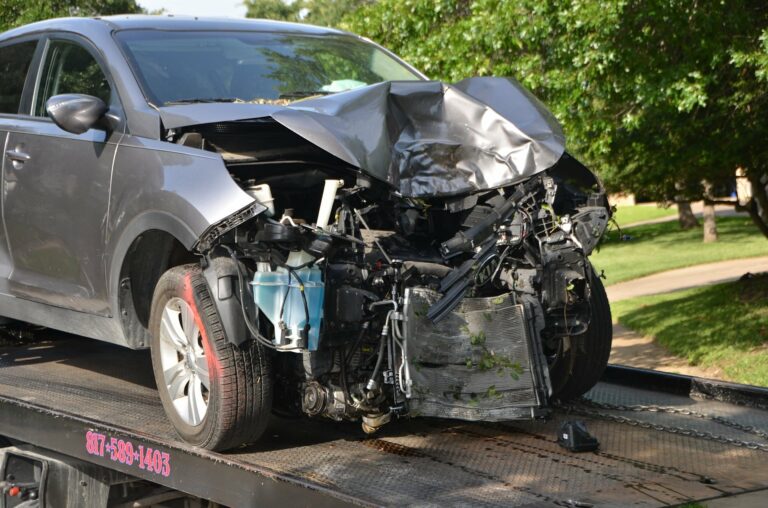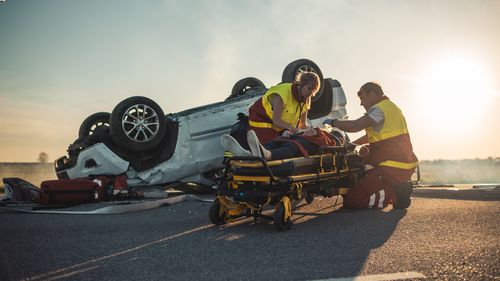- Car Accidents
The majority of states in America have now enacted strict laws regulating the use of cell phones by both adults and teenagers while driving. Although this has deterred some drivers from using their phones in fear of facing fines and penalties, many teenagers continue to use their devices while driving without regard for the consequences. This problem was exemplified in the metro Atlanta, Georgia area, when a 19- year-old driver was using a social media application called SnapChat while driving and rear ended another driver, leaving him with traumatic brain injury. It has been reported that the young driver was exceeding speeds of 100 mph in anticipation of receiving a reward for her excessive speed from the application program when she negligently rear ended the other car. Even after the accident, she continued to use the application while being cared for by paramedics. The young driver now faces charges of serious injury by vehicle, reckless driving, speeding over 35 mph past the speed limit, as well as driving too fast for conditions, which are classified as a felony and misdemeanors respectively. While the young driver found the importance of documenting her journey on the social media application, the injured driver is now left with permanent brain damage and piling medical bills.
However, this is not the only case of social media influencing distracted driving and resulting in an accident. In December 2015, three girls were killed in a similar scenario as discussed above when they attempted to document their journey using the social media application and crashed into a commercial truck. Similar to the driver in Georgia, it is currently being contested by Snapchat whether the driver was using the speed feature prior to hitting the truck that contained hazardous material. Thus, as we enter into the deadliest time of year for teen drivers, which is the period from Memorial Day to Labor Day, teenage drivers need to understand the ramifications of this type of negligent behavior while driving. Teenage drivers are more distracted than ever with various social media applications, text messages, as well as passengers in the car; one report by the AAA Foundation for Traffic Safety found that almost 60 percent of accidents caused by teenagers were due to distracted driving. With an increase of 16 percent in traffic deaths in the state of Georgia, there has been pressure to further restrict their rules regarding cell phone usage while driving.
Legal Consequences in Georgia
Georgia follows many of the same regulations set out throughout the United States. While drivers 18 years of age or older may use their cell phones for functions such as making calls or using GPS while driving, novice drivers under the age of 18 years are prohibited from all cell phone use while operating a vehicle.
All drivers are prohibited from using their cell phones to text while driving a vehicle in Georgia. This not only applies to text messages, but to email, as well as using internet data such as social media applications. Since the overall ban on texting while driving in 2010, there have been almost 8,000 convictions for the offense. If caught texting and driving, violators may be fined up to $150 and receive points on their record. Police officers in Georgia may pull over vehicles for texting while driving as a primary offense. A primary offense is an offense which an officer can stop a vehicle for and issue a citation, unlike a secondary offense which requires another offense to occur in combination for an officer to cite texting and driving.
Social Media & Evidence in Trial
One difficult portion of proving guilt in the cases involving social media application use has been the ability to obtain data history and usage reports from the applications. Showing these database histories would be critical in proving whether the application was active and open at the time of the accident, giving a direct correlation. The two cases regarding the application Snapchat have proven difficult to obtain data from due to the temporary nature of the photographs and videos sent. Once the media is opened by the other users it was sent to, it disappears from the history and is also wiped from the company’s server. However, the company servers do retain information about the time at which a photograph or video was sent, just not the actual content. Being able to show that the injuring driver was using the application at the same time or around the time of the accident would be circumstantial evidence. There are various problems that exist when it comes to this particular application, leading many people to question whether data is actually retrievable as well as why this particular speed filter is not removed from the settings.
Data from other, more permanent, social media applications has proven very useful in criminal, personal injury, employment and family law related matters and is completely admissible in most scenarios. There is a duty to preserve social media evidence “when a party reasonably foresees that evidence may be relevant to issues in litigation.” Thus, when put on notice, parties are to keep their information on social media available. While many decide to delete information, sites such as Facebook offer a Download Your Info feature that puts all of the information you are viewing into a zip file and stores it. Additionally, Twitter allows users to download all of the tweets sent out by a particular account by requesting copies of the user’s archive. These are just a few examples of the various tools that parties can use to show a connection or possibly prove guilt by one party. Thus, as social media, smartphones and the internet become more advanced, the legal system is quickly adapting to integrate their legal status into the evidence process.
Contact Our Law Firm Today
Automobile accidents can instantly change the lives of those involved. If you or someone you know was involved in an automobile accident due to negligent driving, particularly due to the use of cell phones, do not hesitate to contact our experienced Georgia car accident attorneys at the Wade Law Offices today and let us fight to get you what you deserve.









